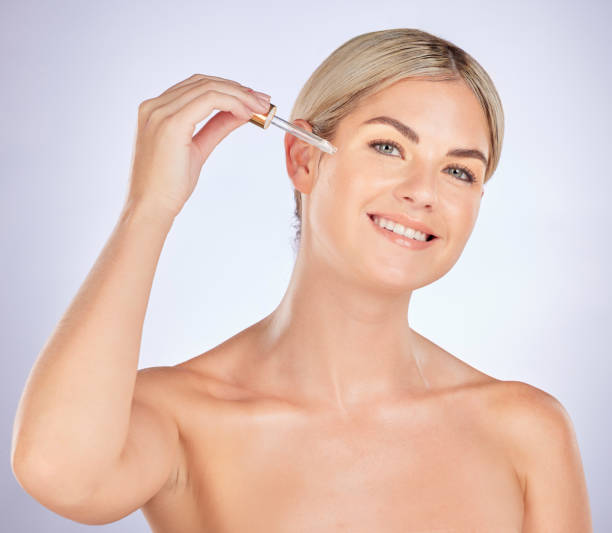Do you often browse new skincare products? You may read labels and research ingredients to determine which products are worth your money. You’ve probably come across skincare products that contain Retinol. Maybe you’ve even tried Retinol. If you have oily skin or are prone to blemishes, you might be interested in the fantastic results that Retinol can deliver. But you may not know if it is safe for your acne-prone, acne-prone skin.
Our Skin Health Experts will reveal how Retinol may help with bumps and blemishes you have had since childhood or even adulthood.
Retinol’s anti-aging benefits may also help acne-prone skin and reduce the appearance of marks and scars. When her son struggled with teenage breakouts, Kate became a fan of Retinol. She and her son saw a fantastic improvement in the skin after using Retinol consistently.
How can Retinol benefit you and your acne-prone skin? What kind of Retinol will be most effective?
Retinol is available in different forms. Retinol gels, creams, lotions, and serums are available for those who prefer a specific skincare product. We’ll explore Retinol and its benefits to see how it can help you achieve clearer skin.
What is Retinol
Retinol is a fat-soluble vitamin A derivative (1). You may hear Retinol and retinoids used interchangeably, but these are different.
Retinoids (2) – Retinoids are the name of any product containing derivatives from vitamin A. They are available in topical and oral forms for skin care. Strengths vary widely between over-the-counter and prescription levels.
Retinol – Retinol, a type of retinoid, is usually gentler when treating certain skin conditions.
Despite being one of the less potent retinoids available on the market today, Retinol can offer several benefits to your skin with regular usage.
What are the benefits of Retinol for your skin
Here are some of the benefits that your skin will receive when you use Retinol in a product such as Kate Somerville’s DermalQuench(tm) Liquidlift(tm), a powerful hydration treatment that firms, smoothes, and plumps the skin or one of Kate’s expertly-formulated Retinol+Vitamin C products:
Unblocks pores- Retinol’s exfoliating qualities come from the ability of Retinol to encourage skin cell turnover and replace old cells with new ones. This removes dry skin and oils that can clog the pores and cause acne and blackheads.
Retinol helps the skin to regain its elasticity. This helps to smooth out wrinkles and fine lines that have formed over time.
Improves texture and tone- Retinol also works wonders to clear pores and smooth over wrinkles, giving you a more youthful skin texture.
Regulates excessive oil production. This may prevent your oil-producing sebaceous (sebaceous) glands from going into overload.
The benefits of Retinol combine to create more transparent, healthier-looking skin.
What is the relationship between Retinol and Acne Treatments
What does this all have to do with acne?
Acne occurs when you produce too much sebum (oil), which traps dead cells in your pores. Red bumps, painful swelling, and irritation characterize acne. Retinol can help to reduce breakouts by reducing the amount of pore congestion.
How should you use Retinol products
Retinol is available in a variety of forms, including:
- Creams
- Lotions
- Serums
- Gels
It’s essential to adhere to your dermatologist’s dosage recommendations when applying Retinol. Our Skin Health Experts at Kate Somerville recommend starting slowly when using Retinol for the first time. Try using one product twice or once a week to see how your skin reacts. You can use Retinol 3-4 times weekly as your skin becomes accustomed to it. Never use more than one retinol product in a day or night routine. We recommend that you use both serums and creams, such as our +Retinol C Vitamin Serum and +Retinol C Vitamin Moisturizer, on different days of the week. Retinol should be used at night. Apply sunscreen to your skin at the end of the morning skincare routine, as the skin is more sensitive.
What are the side effects of using Retinol
Use only the recommended dose of Retinol for your skin, as it can cause side effects. The more powerful the product, the more you’ll likely experience irritation.
The following are some of the most common side effects:
- Sun sensitivity
- Itchy and dry skin
- Burning sensation
- Peeling
- Redness and irritation
These side effects usually resolve themselves over time. If they are persistent or incredibly uncomfortable, alert your dermatologist.
Retinol can have different side effects on skin types. People with oily skin may respond better to Retinol than dry or sensitive skin. Ask your dermatologist for advice if you are unsure about retinol use.
